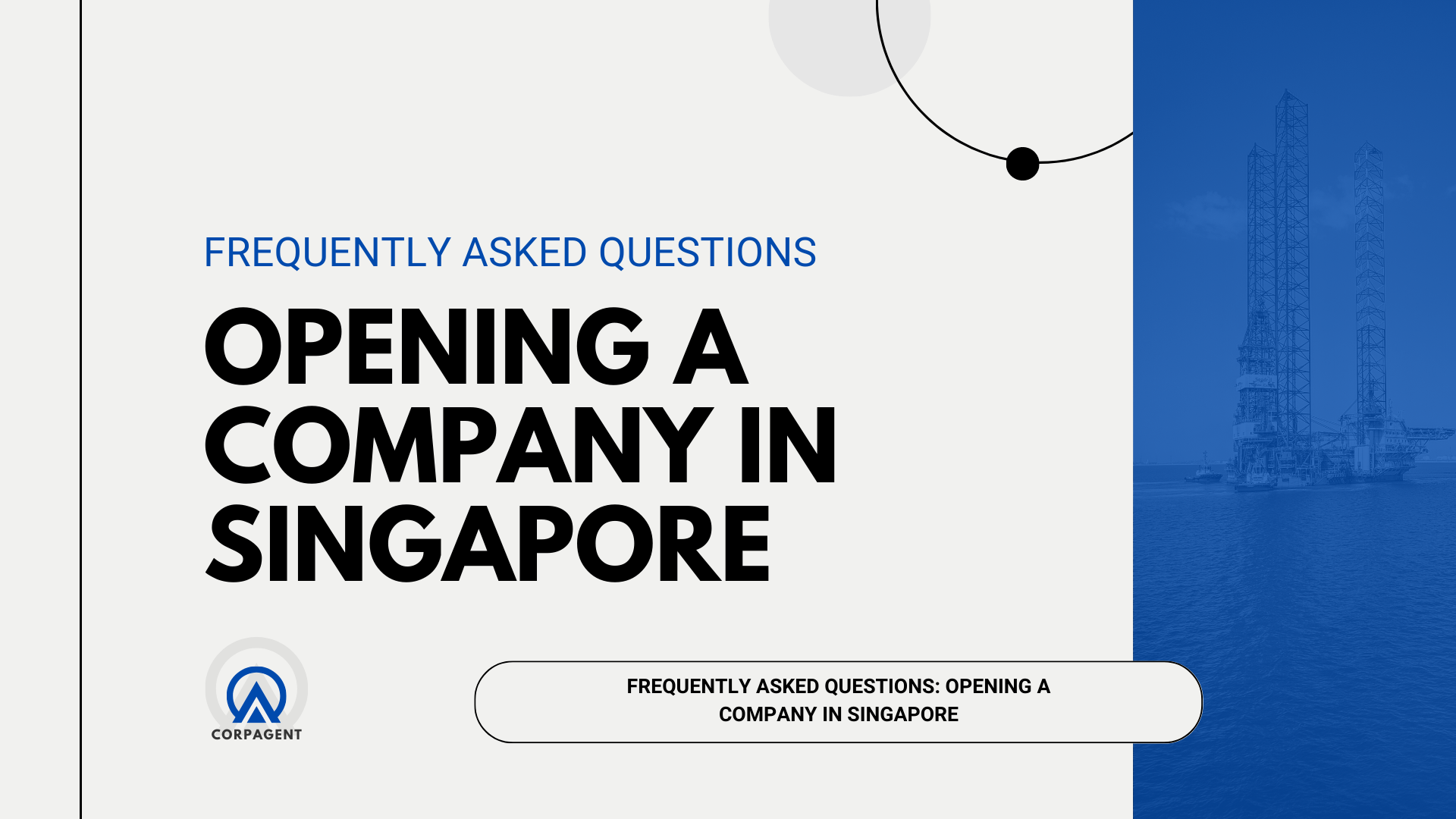- Internationally Recognized
- Low Tax Regime
- Able to open a bank account anywhere in the world
- Tax exemption for offshore business & income
- Obtained many recognition around the world (Incl. Forbes, World Banks, and Global Economic Boards)
- Vehicle to do business with Asian Countries & the U.S
- Ranked #1 as the most politically stable country in Asia
Frequently Asked Questions: Opening A Company in Singapore
03-09-2022
Singapore is a popular offshore country that is a popular destination for those who want to operate overseas. The article will summarize the most frequently asked questions businesses have when requesting for a company formation in Singapore.
-
Why should businesses open a company in Singapore?
Can foreigners open a company in Singapore?
The answer is yes. According to the Accounting and Corporate Regulatory Authority of Singapore (ACRA), foreigners need to register a company in Singapore through the company formation service. The reason is that they do not have SingPass accounts to be able to register their own businesses.
Can foreigners own a business in Singapore?
Entirely possible. A Singapore company can be 100% owned by foreign shareholders.
What kind of company should I open in Singapore?
Most entrepreneurs choose to set up a private limited liability company in Singapore. This type of company has a separate legal status. Members have limited liability. This type of company can also apply for a variety of special tax incentives. Compared to other types of businesses, a private limited liability company offers the most benefits to you.
What are the minimal requirements for opening a company in Singapore?
- There is a director settled in Singapore
- There is a company secretary
- Have at least one shareholder
- Have a registered address in Singapore
How can I open a company in Singapore without being a Singaporean?
If you use CorpAgent’s services, you can register a Singapore company through the following 5 steps: (i) get expert advice, (ii) choose a service package, (iii) make payment, (iv) provide us with the necessary documents, (v) receive the results within 1 day.
What types of documents should I prepare to open a company in Singapore?
In general, you will need to prepare the following information and documents:
- Company name (must not be the same as registered business names)
- Description of the business
- Details of directors and shareholders
CorpAgent will assist you with other documents: details of the appointed director, company secretary, office address and set of company regulations.
What kind of name can I give to my new company in Singapore?
How long does it take to open a company in Singapore?
Registering a company in Singapore is quite simple and fast. Once your application has been submitted to ACRA, it only takes 24 hours for the government agency to process and return the results. However, in some cases, if your application needs to be reviewed by other government agencies, the application period can take up to several weeks.
How much does it cost to open a company in Singapore?
The cost will depend on what you already have and what you need. Our Basic plan costs $2,999. It will help you to meet all the minimum requirements to form a Singapore company. For example, if you already have a director settled in Singapore, the service fee will be reduced.
See our plans for Company Formation in Singapore
What is a Nominee Director (ND)? How can I get somebody to be my Nominee Director?
Under the Singapore Companies Act, all companies must have and maintain at least one director residing in the country. If you use the service to hire a director residing in Singapore, this person is called a nominated director. This director will not normally be involved in the day-to-day running of the company.
Can I be the Director of my Singaporean company?
You can become the sole director of the company by applying for an Employment Pass. This type of visa allows you to settle in Singapore and take on the position of director for your company. You will be recognized as an immigration director in Singapore. At that point, you don’t need to hire a designated director anymore.
What are the next steps following the opening of my Singaporean company?
Other News
Attractive sectors for foreign investment in the Netherlands
The Netherlands was ranked 4th in Best Countries for Business (by Forbes, 2020) with its preferential tax policy and favorable financial environment. In this article, CorpAgent – a corporate service provider – would like to introduce to readers some key sectors that most attract FDI in the Netherlands.
Frequently Asked Questions: Opening A Company in Singapore
Singapore is a popular offshore country that is a popular destination for those who want to operate overseas. The article will summarize the most frequently asked questions businesses have when requesting for a company formation in Singapore.



